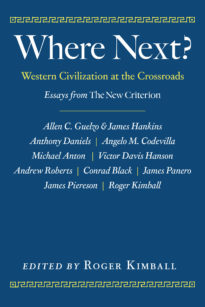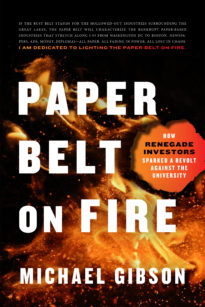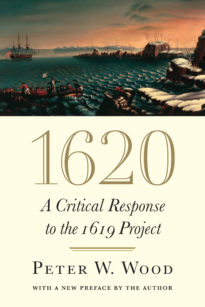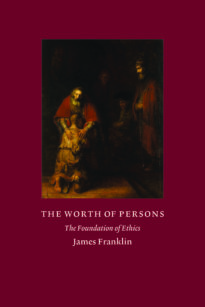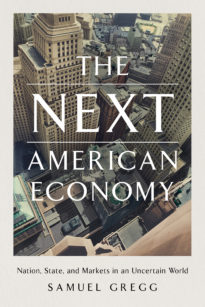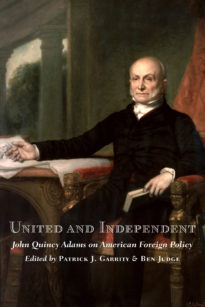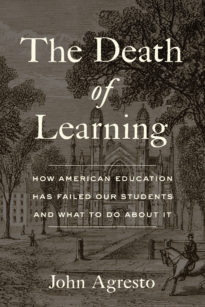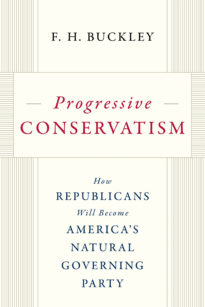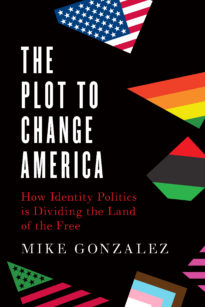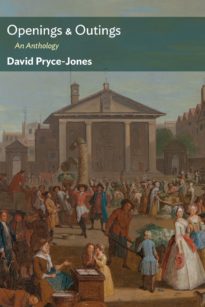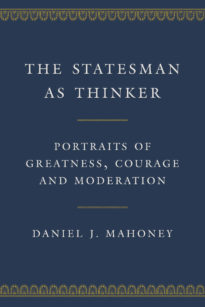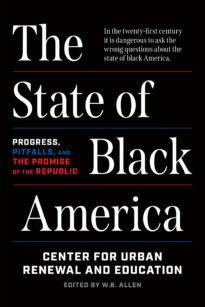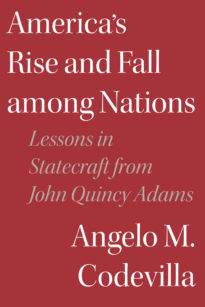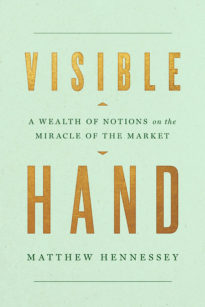Free shipping on all orders over $40
New Releases
Where Next? Western Civilization at the Crossroads
Featuring contributions by Conrad Black, Victor Davis Hanson, Roger Kimball, Andrew Roberts, and other luminaries, this book collects the ten special essays from The New Criterion’s fortieth-anniversary season to assess where Western civilization is now, and where it’s going.
Paper Belt on Fire How Renegade Investors Sparked a Revolt Against the University
Paper Belt on Fire is the unlikely account of how two outsiders with no experience in finance—a charter school principal and defrocked philosopher—start a venture capital fund to short the higher education bubble.
1620 A Critical Response to the 1619 Project
Peter Wood offers a point-by-point response to the New York Times‘s 1619 Project and argues that the proper starting point for the American story is 1620, with the signing of the Mayflower Compact aboard ship before the Pilgrims set foot upon a new land.
The Worth of Persons The Foundation of Ethics
In clear prose and deeply-informed philosophical argument, The Worth of Persons establishes a foundation for ethics in the equal worth of persons, which makes ethics absolutely objective and immune to relativist attacks because it is based on the metaphysical truth about humans.
The Next American Economy Nation, State, and Markets in an Uncertain World
One of America’s greatest success stories is its economy. For more than a century, it has been the envy of the world. The opportunity it generates has inspired millions of people to want to become American. Today, however, America’s economy is at a crossroads. Managed decline and creeping statism do not have to be America’s only choices. This book insists that there is an alternative: a vibrant market economy grounded on entrepreneurship, competition, and trade openness.
United and Independent John Quincy Adams on American Foreign Policy
John Quincy Adams is widely recognized as America’s most distinguished diplomat, taking into account the length and breadth of his public service and his influence on American foreign policy. In the course of this remarkable journey, John Quincy Adams documented his ideas and actions through his writings, speeches, letters, diary entries, and state papers. To aid those interested specifically in learning more about the man and his views on foreign policy, the editors have compiled a collection of the most important and often-cited works, such as his famous July 4, 1821 Oration: “she goes not abroad in search of monsters to destroy.”
The Death of Learning How American Education Has Failed Our Students and What to Do about It
Over sixty years ago, we were introduced to the idea of “the two cultures” in higher education—that is, the growing rift in the academy between the humanities and the sciences, a rift wherein neither side understood the other, spoke to the other, or cared for the other. But this divide in the academy, real as it may be, is nothing compared to another great divide—the rift today between our common American culture and the culture of the academy itself.
Progressive Conservatism How Republicans Will Become America's Natural Governing Party
The Republican Party must return to its roots as a progressive conservative party that defends the American Dream, the idea that whoever you are, you can get ahead and know that your children will have it better than you did. It must show how the Democrats have become the party of inequality and immobility and that they created what structural racism exists through their unjust education, immigration, and job-killing policies.
Let My People Know The Incredible Story of Middle East Peace—and What Lies Ahead
The Trump Administration’s “Peace to Prosperity” vision for the Middle East was unveiled on January 28, 2020. What followed over the next eleven months was one of the most fascinating and consequential periods of U.S. foreign policy in a generation, leading to five normalization agreements between Israel and Muslim states. As the senior advisor to the U.S. Ambassador to Israel, Aryeh Lightstone had a front-row seat on events that dramatically altered the dynamics of the Middle East. Let My People Know provides a behind-the-scenes account of the strategies that allowed the “Deal of the Century” to be struck.
The Plot to Change America How Identity Politics is Dividing the Land of the Free
The Plot to Change America exposes the myths that help identity politics perpetuate itself. This book reveals what has really happened, explains why it is urgent to change course, and offers a strategy to do so.
Openings & Outings An Anthology
Openings & Outings brings together over forty pieces from the long and distinguished career of the writer and commentator David Pryce-Jones.
The Statesman as Thinker Portraits of Greatness, Courage, and Moderation
In The Statesman as Thinker, Daniel J. Mahoney provides thoughtful and elegant portraits of statesmen who struggled to preserve freedom during times of crisis.
The State of Black America Progress, Pitfalls, and the Promise of the Republic
An incisive collection of essays that reveals the past, present, and future strength of Black America as the best hope for a nation that has lost faith in itself.
America’s Rise and Fall among Nations Lessons in Statecraft from John Quincy Adams
Minding our own business, while leaving other peoples to mind theirs, was the basis of the United States’ successful foreign policy from 1815 to 1910. America’s Rise and Fall among Nations contrasts this original “America First” foreign policy with the principles and results of the following hundred years of “progressive” foreign policy which suddenly arrived with the election of Woodrow Wilson as president in 1912.
Visible Hand A Wealth of Notions on the Miracle of the Market
To most people, the word “economics” sounds like homework. In Visible Hand: A Wealth of Notions on the Miracle of the Market, Wall Street Journal op-ed editor Matthew Hennessey brings basic economic principles vividly to life in plain English, without resort to numbers, graphs, or jargon.
